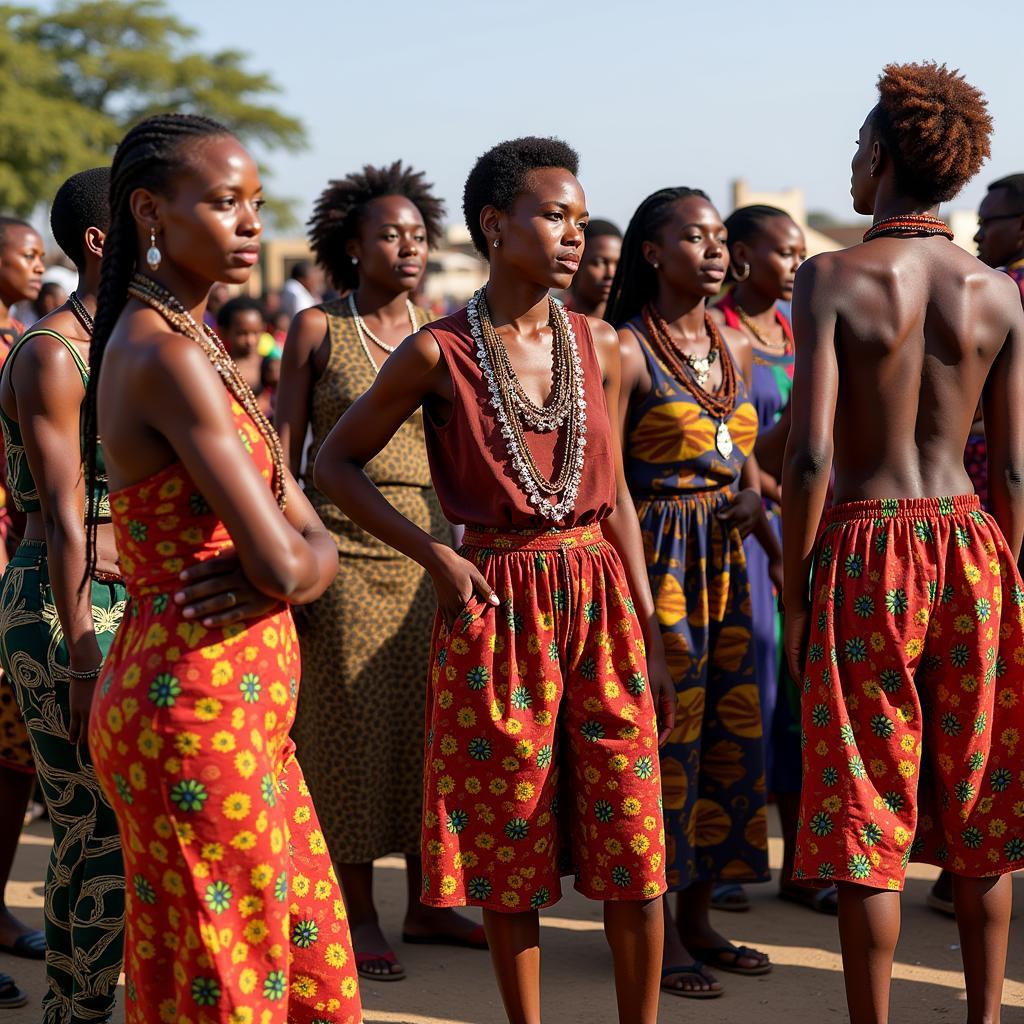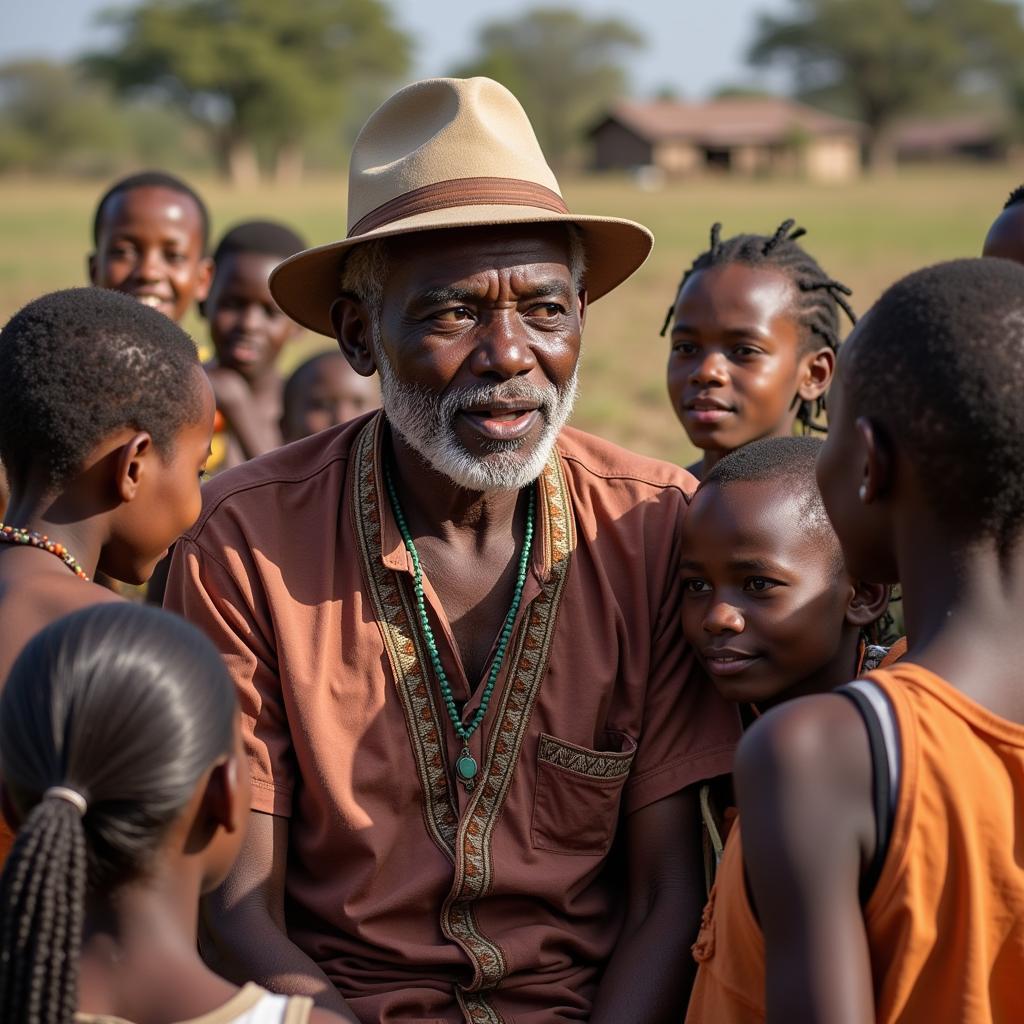Africa, a continent renowned for its rich cultural tapestry, boasts diverse naming traditions that reflect heritage, history, and societal values. While many associate African names with powerful meanings and rhythmic beauty, the quest to uncover the “longest name in Africa” leads us down a fascinating path of linguistic exploration. Is there a single name that reigns supreme, or does the answer lie in the nuances of language and cultural context?
Beyond a Simple Answer: The Complexity of “Longest”
Determining the “longest name in Africa” proves more complicated than simply counting letters. Several factors come into play:
- Oral vs. Written Traditions: Many African cultures have historically relied on oral traditions, where names might be fluid, incorporating titles, praise names, or lineage references that change over time. Transcribing these into written form poses a challenge in capturing their full length and complexity.
- Language Variations: With over 2,000 languages spoken across Africa, defining “longest” becomes subjective. What constitutes a “word” or a “name” varies significantly. Should titles and honorifics be included? How do we compare names from tonal languages where meaning shifts with inflection?
- Evolution of Names: Names in many African societies are not static. They can change throughout a person’s life to reflect accomplishments, milestones, or evolving social standing. This fluidity makes it difficult to pinpoint a single “longest” name that remains constant.
 Celebrating African Names
Celebrating African Names
Exploring Lengthy Naming Practices: A Glimpse into Tradition
While pinpointing the absolute “longest name” remains elusive, certain African cultures are known for their elaborate naming practices that often result in lengthier names:
- East Africa: Maasai names, for example, often incorporate lineage references and praise names, leading to longer constructions.
- West Africa: The Yoruba people of Nigeria are renowned for their descriptive names that may encompass entire proverbs or reflect circumstances surrounding a child’s birth.
- Central Africa: Some communities in the Democratic Republic of Congo utilize names that weave together clan affiliations, ancestral connections, and personal attributes, resulting in names of considerable length.
It’s important to approach these examples not as a competition for the “longest,” but rather as illustrations of how names serve as powerful vessels of cultural identity and storytelling.
Modern Influences: Shorter Names and Hybridity
While traditional naming practices persist, modern influences have led to a trend toward shorter, often Christian or Muslim names, particularly in urban areas. This shift reflects the impact of globalization, literacy, and practicality in a world increasingly reliant on written documentation.
Interestingly, a new form of hybridity has also emerged, with some individuals adopting both a traditional African name and a shorter, more internationally recognizable name. This practice highlights the adaptability of African naming customs and the desire to bridge cultural contexts.
 Passing Down Naming Traditions
Passing Down Naming Traditions
The True Value of African Names
While the search for the “longest name in Africa” presents an intriguing linguistic puzzle, it’s crucial to remember that African names hold significance far beyond their physical length. They embody history, spirituality, family ties, and aspirations.
“Each name carries a story, a legacy whispered from generations past,” says Dr. Abena Nkrumah, a scholar of African linguistics. “To understand African names, one must listen not just to the sounds, but to the echoes of ancestry, the hopes for the future, and the profound connection between identity and language.”
Conclusion: Celebrating Diversity and Meaning
The quest to determine the “longest name in Africa” ultimately leads us to a deeper appreciation for the continent’s rich linguistic and cultural diversity. While a definitive answer may remain elusive, the journey itself unveils the fascinating ways in which names serve as powerful markers of identity, heritage, and storytelling across Africa.
Instead of fixating on length, let us celebrate the beauty, meaning, and cultural richness embedded in every African name, acknowledging them as threads in the vibrant tapestry of the continent’s heritage.
FAQs:
1. Do all African names have long meanings?
Not necessarily. While some African names are quite descriptive, others may be shorter and based on factors like the day of the week a child was born or the order of birth in the family.
2. Why are some African names changing?
Globalization, migration, and religious conversion have influenced naming practices in some parts of Africa. Additionally, practicality in a modern world often favors shorter names for official documents and daily use.
3. Where can I learn more about the meaning of my African name?
Numerous online resources and books are dedicated to African names and their meanings. Additionally, connecting with cultural organizations or individuals from specific ethnic groups can provide valuable insights.
4. Are there any resources for choosing an authentic African name for my child?
Yes, several books and websites specialize in African names, offering explanations of their meanings, cultural origins, and pronunciation guides.
5. Is it appropriate for people of non-African descent to use African names?
This is a complex issue with varying perspectives. Some argue that it’s a form of cultural appropriation, while others see it as a way of honoring and appreciating African culture. If considering an African name, thorough research and respectful understanding of its origins and significance are crucial.
For further exploration of African culture, check out these articles:
- 10 African Countries Names
- African King Cobra
- African Black Mamba Pictures
- 100 African Proverbs
- African Cat Pet Names
Need help or have more questions? Contact us:
Phone: +255768904061
Email: [email protected]
Address: Mbarali DC Mawindi, Kangaga, Tanzania.
Our dedicated team is available 24/7 to assist you.
Leave a Reply